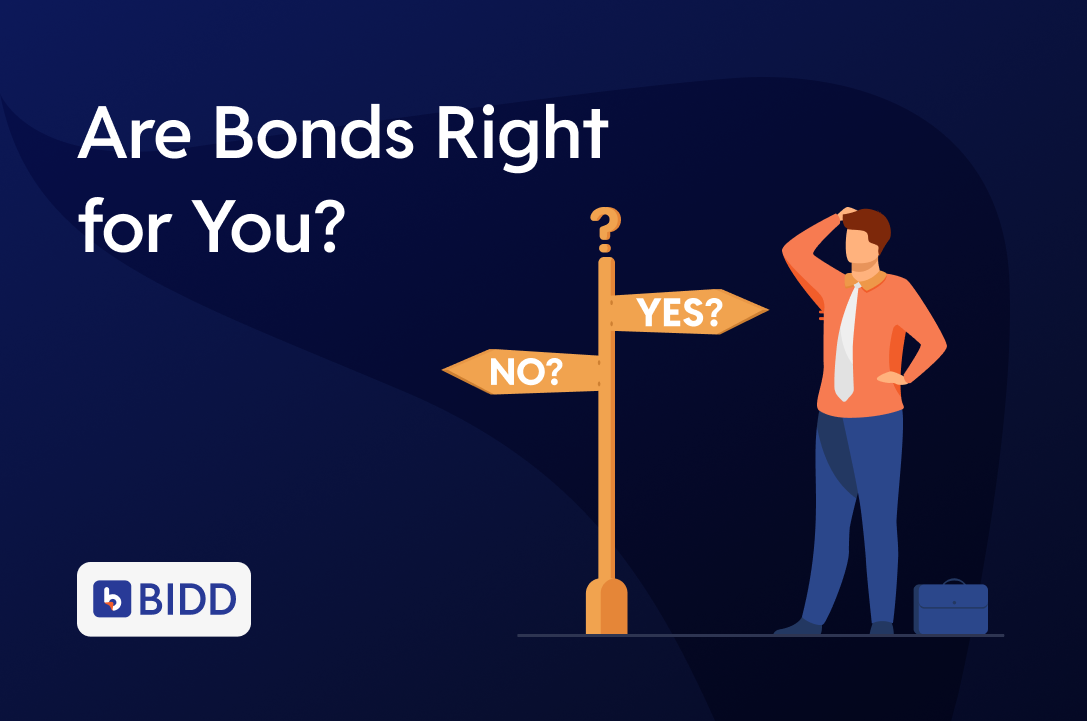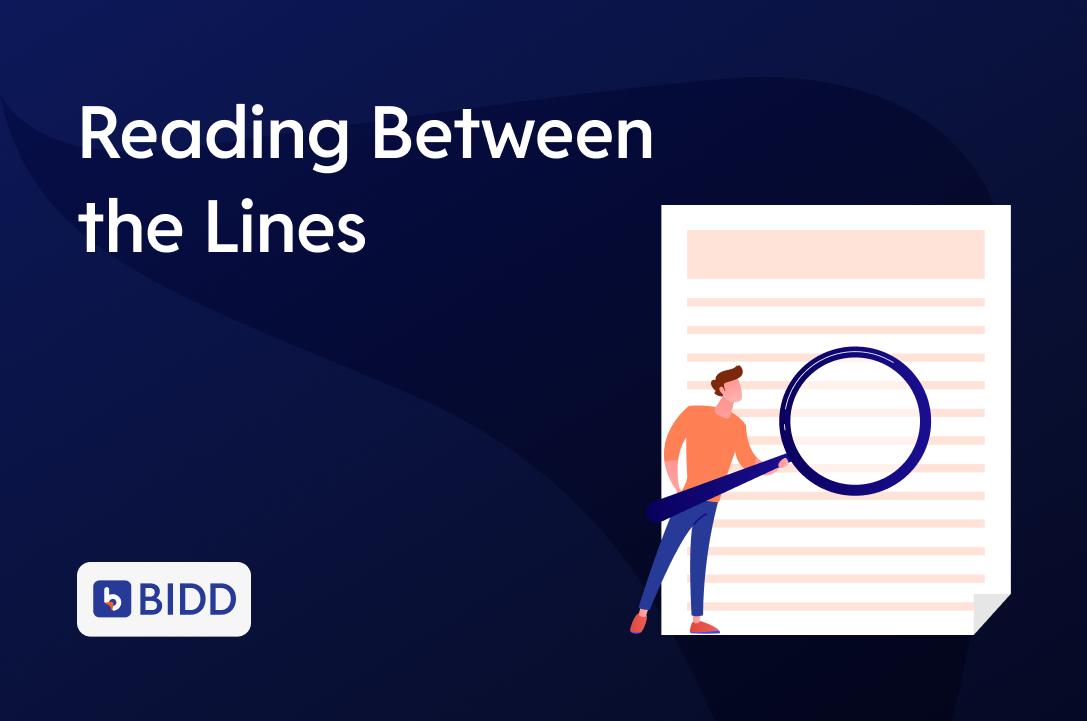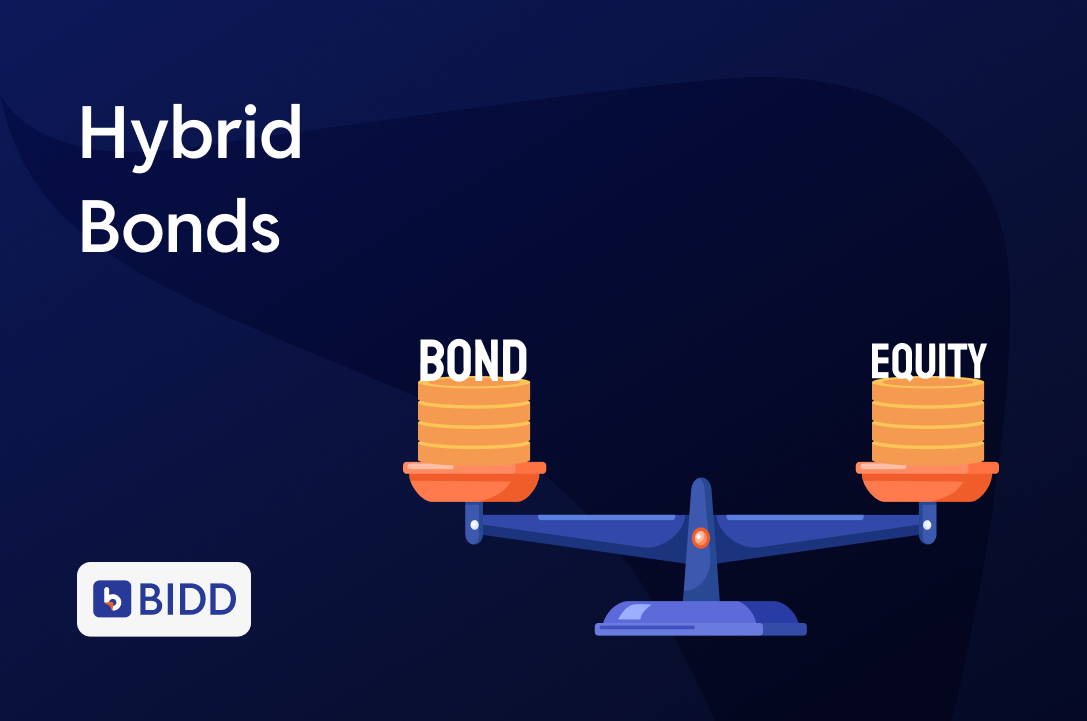Let’s Figure Out If Bonds Belong in Your Portfolio
Let’s Start with a Quick Question
You’ve been hearing a lot about bonds lately.
Maybe a friend mentioned “11% YTM.”
Maybe you saw the phrase “secured bond” on Bidd.
It sounds interesting — but here’s the real question:
Are bonds the right fit for you as an investor?
Let’s break it down, minus the jargon.
What Exactly Are Bonds?
At their core, bonds are loans — you lend money to companies, NBFCs, or even the government.
In return, you receive regular interest (known as a coupon) and your money back at maturity.
Think of it as switching roles — you become the lender.
Key features:
- Predictable returns
- Fixed maturity
- Generally lower volatility than equities
So… Who Might Bonds Not Be For?
Let’s be realistic. Bonds may not suit you if you:
- Want to double your money quickly
- Thrive on high-risk, high-reward trades
- Enjoy the excitement of daily stock market fluctuations
And that’s perfectly fine — investing is not one-size-fits-all.
But Bonds Do Make Sense If You…
1. Want Regular, Predictable Income
Think of bonds like scheduled cash flows — monthly, quarterly, or annual.
If you’re retired or building passive income, bonds can replicate the predictability of rent or salary.
2. Prefer Lower-Risk Investments
If equity volatility gives you pause, bonds — especially secured, rated ones — offer a more stable alternative.
They may offer lower upside, but they help you sleep better.
3. Need Capital Protection
Secured bonds come with safety features — like collateral, strong promoters, or institutional backing.
If your priority is safeguarding principal, they can serve as a core portfolio anchor.
4. Want to Diversify
An all-equity portfolio is like a cricket match with just a bat.
Adding bonds brings balance — smoothing returns and reducing overall portfolio risk.
5. Have a Medium-Term Financial Goal
Saving for something in 2–5 years?
A bond that matches your goal’s timeline helps you lock in returns without the uncertainty of equities.
But Be Aware of These Too
While bonds offer many benefits, they’re not without limitations:
- Liquidity: Some bonds are not easily sold before maturity
- Default Risk: Particularly with low-rated or unsecured issuers
- Taxation: Interest income is taxable — so plan accordingly
Like any asset, weigh the pros and cons.
Real-Life Examples
Investor A
- Age: 35
- Goal: Long-term wealth
- Outlook: Bonds may not be the primary focus, but add useful stability.
Investor B
- Age: 55
- Goal: Retirement income
- Outlook: Ideal candidate for regular income through monthly-pay bonds.
Investor C
- Age: 28
- Goal: Save for a wedding in 3 years
- Outlook: A short-term, secured bond aligns well with their time horizon.
Quick Recap: Are Bonds Right for You?
| You Are… | Bonds Make Sense? |
| A risk-averse investor | Yes |
| Looking for regular income | Yes |
| Chasing fast, high returns | Not ideal |
Final Thoughts
There’s no universal blueprint for building wealth.
But bonds are one of the most underutilized tools for creating balance, income, and capital stability.
So the next time you browse the Bidd platform or speak to a financial advisor, ask yourself:
- Do I need predictable income?
- Am I comfortable trading some upside for more safety?
- Would my portfolio benefit from more stability?
Because the smartest investments aren’t always the flashiest —
They’re the ones that quietly perform year after year.
Bonds aren’t boring.
They’re built for real-life goals.




